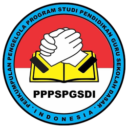Literature Review: The Application of TPS Cooperative Learning Model In Improving Student Learning Outcomes
DOI:
https://doi.org/10.21009/PIP.382.4Keywords:
Cooperative Learning, Learning Outcomes, TPSAbstract
Cooperative learning can be defined as a method in which students work together in small groups to support each other's learning, with the goal of understanding class objectives and engaging in learning activities. An instructional approach that utilizes this new framework is known as Think Pair Share (TPS), a pedagogical model consisting of several learning stages that can increase student engagement and interaction. The Think Pair Share (TPS) cooperative learning model is a structured approach to group learning where students exchange ideas to improve their cognitive abilities, articulate their viewpoints, and foster collaboration among peers. The purpose of this study is to investigate the effectiveness of implementing the TPS (Think Pair Share) cooperative learning model to improve student learning outcomes. This study used a methodology by conducting a literature review. The methodology used in this literature review is based on a qualitative approach and uses data collection techniques from the literature review. Based on the results of the study, it can be concluded that the application of the TPS (Think Pair Share) type cooperative learning model can improve students' cognitive learning outcomes. The TPS Learning Model is suitable for MIPA learning because it effectively meets students' learning needs through its implementation
Downloads
Published
How to Cite
Issue
Section
License
Copyright (c) 2024 Wiwit Mustika Wiwit

This work is licensed under a Creative Commons Attribution-NonCommercial-ShareAlike 4.0 International License.
Authors who publish with this Journal agree to the following terms:
- Author retain copyright and grant the journal right of first publication with the work simultaneously licensed under a creative commons attribution licensethat allow others to share the work within an acknowledgement of the work’s authorship and initial publication of this journal.
- Authors are able to enter into separate, additional contractual arrangementfor the non-exclusive distribution of the journal’s published version of the work (e.g. acknowledgement of its initial publication in this journal).
- Authors are permitted and encouraged to post their work online(e.g. in institutional repositories or on their websites) prior to and during the submission process, as it can lead to productive exchanges, as well as earlier and greater citation of published works.
-
Users/public use of this website will be licensed to CC BY-NC-SA Creative Commons Attribution-NonCommercial-ShareAlike 4.0 International License











